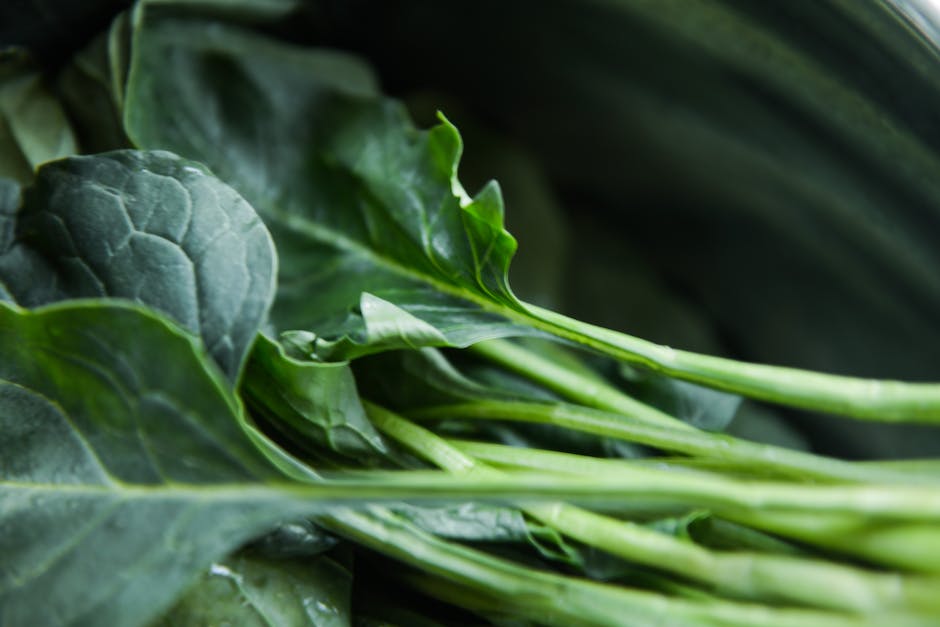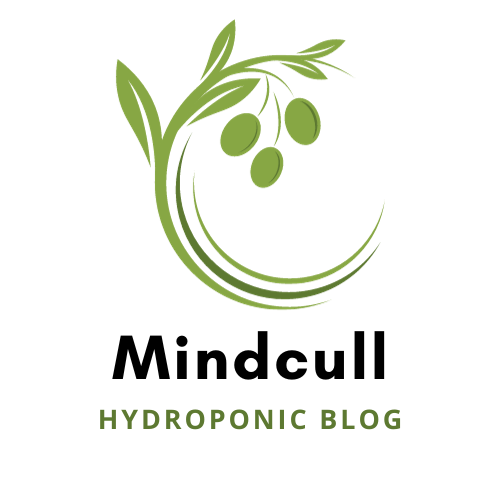How Healthy Are Hydroponic Vegetables
Hydroponic farming has gained significant attention in recent years, especially in the realm of sustainable agriculture. This innovative farming method involves growing plants without soil, relying instead on nutrient-rich water solutions to support their growth. As a result, hydroponics offers numerous advantages such as higher crop yields, reduced water usage, and the ability to grow fresh produce year-round in controlled environments.
While hydroponic vegetables can be found in many grocery stores and restaurants, some skeptics question their nutritional value. Traditionalists argue that soil-grown vegetables are inherently healthier due to the natural nutrients and microorganisms found in the soil. However, scientific research continues to shed light on the benefits of hydroponic farming, challenging these preconceptions.
One key advantage of hydroponics is the precise control over nutrient levels, ensuring that plants receive the ideal balance of minerals necessary for their growth. This method allows for better absorption of nutrients, maximizing the plants’ nutritional content. Additionally, hydroponics eliminates the need for pesticides and herbicides, resulting in cleaner, chemical-free produce.
Furthermore, hydroponic systems provide plants with an optimal environment to thrive, minimizing the risk of diseases and pests that are common in traditional farming. By reducing the potential for contamination and exposure to harmful organisms, hydroponically-grown vegetables tend to have fewer disease-causing bacteria, making them a safer choice for consumption.
It is important to note that the nutritional value of hydroponic vegetables can vary depending on factors such as the specific crop, growing conditions, and the quality of the nutrient solution used. Just like with conventionally grown produce, choosing fresh and ripe hydroponic vegetables is crucial to ensure the highest nutritional content.
In conclusion, hydroponic vegetables offer a promising alternative to traditional farming methods. While the debate over their nutritional value continues, research suggests that hydroponically-grown produce can be just as healthy, if not more so, than their soil-grown counterparts. As the demand for sustainable and locally sourced food increases, hydroponics presents an opportunity to meet these needs while minimizing environmental impact.
Explanation of the nutritional value of vegetables grown hydroponically

When it comes to hydroponic vegetables, there is often debate about their nutritional value compared to conventionally grown vegetables. Hydroponics is a method of cultivating plants without the use of soil, where the plants receive essential nutrients through a water-based solution. While some critics question whether hydroponic vegetables can match the nutritional content of traditionally grown vegetables, research suggests that they can indeed be just as healthy.
One of the key advantages of hydroponic systems is the ability to closely monitor and control the nutrient levels in the water solution. This allows growers to optimize the plant’s nutrient intake, resulting in vegetables that are packed with essential vitamins, minerals, and antioxidants. In fact, studies have shown that hydroponic vegetables can contain higher levels of certain nutrients compared to conventionally grown ones. For example, hydroponically grown lettuce has been found to have higher concentrations of vitamin C and certain minerals like calcium and magnesium.
Another benefit of hydroponics is the reduced use of pesticides and herbicides. Since hydroponic systems are typically set up in controlled environments, the need for chemical interventions is significantly reduced. This means that hydroponically grown vegetables often have fewer pesticide residues, making them a healthier choice for consumers concerned about chemical exposure.
Additionally, the absence of soil in hydroponic systems eliminates the risk of soil-borne diseases and pests, further reducing the need for chemical treatments. As a result, hydroponic vegetables are often fresher and more vibrant, retaining their nutritional value for longer periods.
While there may be slight variations in the overall nutrient profile of hydroponic vegetables compared to traditionally grown ones, it is important to remember that the overall nutritional value still remains high. The controlled environment and optimized nutrient intake in hydroponic systems ensure that the plants receive all the necessary elements for healthy growth.
It is worth noting that sustainable farming practices, including hydroponics, are continuously evolving to enhance the nutritional value of vegetables. Growers and researchers are constantly working to refine techniques and improve nutrient formulations to maximize the health benefits of hydroponic produce.
In conclusion, hydroponic vegetables offer a healthy and nutritious alternative to conventionally grown vegetables. The controlled environment, reduced chemical use, and optimized nutrient intake contribute to their nutritional value. As consumer demand for fresh, safe, and sustainable produce grows, hydroponic farming is likely to play a vital role in meeting these requirements while providing wholesome vegetables for a health-conscious population.
Comparison of nutrient levels in hydroponically grown vegetables versus conventionally grown vegetables

When it comes to the nutritional value of vegetables, many people wonder how hydroponically grown vegetables compare to conventionally grown ones. Hydroponics is an innovative method of growing plants without soil, using mineral nutrient solutions in water instead. Let’s delve into the comparison of nutrient levels in hydroponically grown vegetables versus conventionally grown vegetables.
One of the key advantages of hydroponic systems is the ability to closely monitor and control nutrient levels. In conventional farming, soil quality can vary significantly, affecting the nutrient content of the crops. On the other hand, hydroponics allows for precise nutrient dosing, ensuring that plants have access to all the necessary elements for optimal growth. Consequently, hydroponically grown vegetables often contain higher levels of essential nutrients compared to their conventionally grown counterparts.
Studies have shown that hydroponic vegetables can have increased levels of vitamins and minerals, such as vitamin C, vitamin A, potassium, and iron. This is particularly beneficial for individuals seeking to increase their intake of essential nutrients. Moreover, hydroponic systems eliminate the need for pesticides and herbicides, creating an opportunity for healthier and safer produce.
In addition to higher nutrient levels, hydroponically grown vegetables are also known for their consistent quality and taste. By providing plants with the ideal growing conditions, hydroponics allows for better control over factors like water, light, and temperature. This enables plants to reach their full potential, resulting in vegetables that are more vibrant, flavorful, and visually appealing.
However, it’s important to note that the nutrient levels in hydroponically grown vegetables can vary depending on the specific system and the care taken by the grower. Factors such as the composition of the nutrient solution, plant variety, and environmental conditions can all influence the final nutrient content of the produce. Therefore, it is crucial for hydroponic farmers to maintain strict quality control measures and consistently monitor the nutrient levels in their systems.
In conclusion, when comparing nutrient levels, hydroponically grown vegetables often outshine conventionally grown ones. The ability to customize the nutrient supply in a hydroponic system allows for higher concentrations of essential vitamins and minerals. Additionally, the controlled environment of hydroponics ensures consistent quality and taste. However, it is important for hydroponic farmers to maintain proper care and monitoring to maximize the nutritional potential of the produce. So, if you’re looking for nutrient-rich vegetables that are also sustainable and safe, hydroponically grown options are worth considering.
Discussion on the absence of soil and implications on the vegetable’s nutrient content (e.g., minerals)

Hydroponic farming is gaining popularity as an innovative and sustainable method of growing vegetables. One of the key aspects of hydroponics is the absence of soil, which raises interesting questions about the nutrient content of the vegetables produced through this method. Without soil, how are the plants able to absorb essential minerals for their growth? And does the absence of soil have any implications on the nutrient quality of hydroponically grown vegetables?
In traditional soil-based farming, plants extract nutrients from the soil, which acts as a reservoir of essential minerals such as potassium, calcium, and magnesium, among others. These minerals are crucial for the development and overall health of the plants. However, in hydroponics, the nutrient solution is used as a substitute for soil, providing a carefully balanced mixture of essential minerals, tailored to the specific needs of each plant. This nutrient solution consists of dissolved mineral salts, making it easily accessible for the plants’ roots to absorb.
One may argue that without soil, hydroponically grown vegetables might lack certain minerals naturally present in the earth. While it is true that soil can contain a variety of minerals, the success of hydroponics lies in its ability to provide a precise and controlled environment for plant growth. In fact, proponents argue that hydroponically grown vegetables often exhibit superior nutrient content precisely because they receive a well-balanced and targeted supply of essential minerals.
In hydroponics, every aspect of the environment is customizable, allowing farmers to optimize the nutrient levels for each vegetable variety. This level of precision ensures that the plants receive exactly what they need, maximizing their nutrient uptake. Additionally, without the presence of soil, there is a reduction in the competition between plants and other microorganisms for essential nutrients, further enhancing the plants’ ability to absorb minerals efficiently.
Studies comparing the nutrient content of hydroponic vegetables to their soil-grown counterparts have shown promising results. In some cases, hydroponically grown vegetables have been found to contain higher levels of certain minerals, such as iron and zinc. This can be attributed to the optimized nutrient delivery system in hydroponics, which eliminates the risk of nutrient deficiencies commonly found in traditional soil-based methods.
However, it is important to note that achieving optimal nutrient content in hydroponically grown vegetables requires careful monitoring and management of the nutrient solution. Any imbalances or deficiencies in the solution can have a direct impact on the nutrient content of the plants. Therefore, it is crucial for hydroponic farmers to continuously analyze and adjust the nutrient solution to ensure the vegetables’ overall nutritional quality.
In conclusion, the absence of soil in hydroponic farming does not necessarily imply a compromise on the nutrient content of the vegetables. On the contrary, by providing a precisely controlled environment and targeted nutrient supply, hydroponics allows for the production of vegetables with potentially higher nutrient levels. With ongoing research and technological advancements, hydroponics has the potential to revolutionize the way we grow and consume nutritious vegetables in the future.
Overview of potential pesticide and herbicide usage in hydroponic systems, if any

Hydroponic farming has gained immense popularity in recent years, thanks to its ability to grow vegetables efficiently and without the need for traditional soil-based methods. One common concern among consumers, however, is whether hydroponic vegetables are free from pesticides and herbicides commonly used in traditional farming. In this section, we will delve into an overview of the potential pesticide and herbicide usage in hydroponic systems, providing a closer look at the safeguards in place to ensure healthy produce.
Unlike conventional farming methods, hydroponic systems allow for greater control over the growing environment, minimizing the need for chemical interventions. Due to the controlled nature of hydroponics, the risk of pests and diseases is significantly reduced. Additionally, hydroponic systems can be set up within controlled indoor environments, further reducing the likelihood of exposure to external contaminants. These factors contribute to the overall reduced dependence on pesticides and herbicides in hydroponic farming.
However, it is important to note that hydroponic systems are not entirely free from potential pest and disease outbreaks. In such cases, integrated pest management (IPM) strategies are commonly employed to maintain plant health while minimizing reliance on chemicals. IPM involves a combination of preventative measures, physical barriers, biological controls, and only as a last resort, the targeted use of specific, approved pesticides or herbicides. These practices prioritize the health and well-being of the plants, while ensuring minimal impact on the environment and human consumption.
Furthermore, hydroponic farms often undergo stringent regulation and certification processes. Certifications such as the USDA Organic certification and other regional or industry-specific standards provide assurance that hydroponically grown vegetables meet strict criteria, including limited pesticide and herbicide usage. These certifications also require thorough documentation and transparency regarding the use of any approved chemicals, enabling consumers to make informed decisions about their purchases.
Ultimately, the potential usage of pesticides and herbicides in hydroponic systems is significantly lower compared to conventional farming methods, aligning with the growing demand for healthier and more sustainable agricultural practices. The emphasis on integrated pest management and adherence to certifications ensures that hydroponic vegetables are cultivated with consumer health and environmental sustainability in mind.
As consumers, we can further support the promotion of pesticide-free hydroponic produce by seeking out certifications, understanding the farming practices of the brands we choose, and actively engaging in conversations surrounding sustainable food production. By doing so, we contribute to the growing movement towards a healthier and more environmentally conscious food system.
Examination of potential contaminants in hydroponic vegetables (e.g., heavy metals, bacteria)

As consumers become more conscious about their health and the quality of the food they consume, alternative farming methods like hydroponics have gained popularity. Hydroponic vegetables are grown in nutrient-rich water instead of traditional soil, offering several advantages such as year-round production, efficient water usage, and reduced environmental impact. However, concerns have been raised regarding the potential presence of contaminants in hydroponic vegetables. In this section, we will examine the possible contaminants and how hydroponic farming practices mitigate the risk.
One of the primary concerns when it comes to any type of produce, including hydroponic vegetables, is the presence of heavy metals. Heavy metals occur naturally in soil and can be absorbed by plants during their growth process. While hydroponics eliminate the use of soil, it does not inherently eliminate the possibility of heavy metal uptake. However, hydroponic systems provide a controlled environment where water and nutrients are carefully monitored, minimizing the likelihood of heavy metals being present in the water supply. Additionally, the use of pure water sources and regular testing can help ensure that contamination is prevented.
Another potential concern is the presence of bacteria in hydroponic vegetables. Bacterial contamination can occur through various sources, including water, nutrients, or even the handling process. However, hydroponic systems can be designed in a way that reduces the risk of bacterial growth. One approach is to utilize closed systems, where the water is constantly monitored and replenished, limiting the potential for bacterial contamination. Additionally, implementing strict hygiene practices during the handling and harvesting of the vegetables can further minimize the risk of bacterial contamination.
To address these concerns, hydroponic farmers follow strict guidelines and regulations to ensure the safety and quality of their produce. Regular testing of the water, nutrients, and the final product is an essential aspect of hydroponic farming. It allows farmers to identify and eliminate any potential contaminants, ensuring that only safe and healthy vegetables reach consumers’ plates.
It is important to note that the level of contaminants found in hydroponic vegetables is generally lower compared to conventionally grown produce. The controlled environment in which hydroponics operates contributes to minimizing potential risks. Nevertheless, it is crucial for hydroponic farmers to adhere to rigorous testing and quality control measures to maintain their brand’s professional reputation and provide consumers with peace of mind regarding the safety of their produce.
In conclusion, while concerns can arise regarding potential contaminants in hydroponic vegetables, proper farming practices and continuous monitoring can greatly minimize these risks. Hydroponic farming offers an innovative and sustainable solution for producing fresh and nutritious vegetables, allowing consumers to enjoy healthy produce with confidence.
Explanation of the controlled environment in hydroponic systems and its impact on vegetable health

Hydroponic systems provide a controlled environment where vegetables can thrive and grow. Unlike traditional soil-based farming, hydroponic systems eliminate the unpredictability associated with weather conditions and soil quality. This controlled environment ensures that every aspect necessary for optimal plant growth, such as temperature, humidity, pH levels, and nutrient availability, is carefully monitored and regulated.
One of the significant advantages of a controlled environment in hydroponic systems is the ability to customize and optimize the growth conditions for each type of vegetable. With precise control over factors like lighting intensity, nutrient composition, and water quality, growers can create ideal conditions that promote healthy plant development. This level of control enables vegetables to receive the perfect balance of essential nutrients, resulting in improved nutritional profiles and flavors.
Furthermore, hydroponic systems minimize the risk of pests and diseases, as the absence of soil greatly reduces the likelihood of soil-borne pathogens. This reduces, and in some cases eliminates, the need for pesticides and other chemical treatments that are commonly used in traditional agriculture. Consequently, hydroponically grown vegetables have lower pesticide residues, making them a healthier choice for consumers.
The controlled environment in hydroponic systems also facilitates year-round cultivation, independent of external seasonal changes. This ensures a consistent and reliable supply of fresh produce, even in regions where traditional farming may be challenging due to extreme weather conditions or limited arable land. Additionally, hydroponic systems require significantly less water compared to conventional farming methods, making them more sustainable and environmentally friendly.
In conclusion, the controlled environment provided by hydroponic systems has a profound impact on the health and quality of vegetables. By removing the uncertainties associated with traditional agriculture, hydroponic farming ensures optimal growth conditions, resulting in nutritious, flavorful, and pesticide-free vegetables. The ability to control every aspect of the growing process makes hydroponics a viable solution for meeting the demand for fresh and sustainable produce.
Discussion on the impact of hydroponic farming on water and resource usage

Hydroponic farming has gained significant attention in recent years as a sustainable and efficient method of growing vegetables. One key area that sets hydroponics apart from traditional soil-based farming is its impact on water and resource usage.
Water scarcity is a growing concern globally, and agriculture is a major consumer of freshwater resources. In conventional farming, plants rely on natural rainfall and irrigation systems where substantial amounts of water can be lost due to evaporation and runoff. However, hydroponic systems utilize recirculating water setups, meaning that water is continuously reused, resulting in a significant reduction in water usage compared to traditional methods.
Moreover, hydroponics allows for better control over water consumption. Tailoring nutrient solutions to plant requirements and minimizing water wastage are key advantages of hydroponic farming. By maintaining a precise balance of water and nutrients, hydroponic systems can reduce overall water consumption by up to 90% compared to conventional farming practices. This not only conserves water resources but also minimizes the risk of water pollution caused by excess nutrient runoff into natural water bodies.
In addition to water conservation, hydroponic farming also leads to efficient resource usage. Traditional farming requires vast expanses of land for plant growth, but hydroponics maximizes space utilization. By growing crops vertically or in controlled environments, hydroponic systems can produce higher yields per square foot of land. This results in increased productivity without the need for excessive land expansion, making hydroponics an attractive option for urban or limited-space farming.
Furthermore, hydroponics eliminates the need for chemical pesticides and fertilizers, reducing the reliance on traditional agriculture’s resource-intensive practices. The controlled environment and effective nutrient delivery systems in hydroponics promote plant health and minimize the risk of pests and diseases. This reduction in chemical usage not only conserves resources but also contributes to a healthier and more sustainable food production system.
In conclusion, hydroponic farming has a significant impact on water and resource usage, providing a more sustainable alternative to traditional farming methods. By significantly reducing water consumption, maximizing space utilization, and minimizing reliance on chemical inputs, hydroponics offers a promising solution for efficient and eco-friendly vegetable production.
Analysis of scientific studies on the health benefits and safety of hydroponic vegetables

Numerous scientific studies have been conducted to evaluate the health benefits and safety of hydroponic vegetables. These studies aim to shed light on the nutritional composition and potential risks associated with consuming these produce. Analyzing the findings of these studies provides valuable insights into the overall healthfulness of hydroponic vegetables.
One study conducted by researchers at a renowned agricultural institute focused on comparing the nutrient content of hydroponically grown vegetables with their soil-grown counterparts. The results demonstrated that hydroponically grown vegetables are often richer in essential vitamins, minerals, and antioxidants. Specifically, researchers found higher concentrations of vitamin C, vitamin E, and beta-carotene in hydroponic vegetables. These nutrients play a critical role in maintaining a healthy immune system, promoting good vision, and providing antioxidant protection against cellular damage caused by free radicals.
Additionally, various studies have investigated the safety aspects of hydroponic vegetables, particularly regarding pesticide residues. Since hydroponic systems minimize or eliminate the need for chemical pesticides and herbicides, it is generally observed that hydroponic vegetables tend to have lower pesticide residue levels compared to conventionally grown produce. This reduction in pesticide exposure is a significant advantage, as certain pesticides have been linked to adverse health effects, including hormone disruption and neurological problems.
Furthermore, hydroponic systems provide better control over environmental factors, such as water quality and nutrient supply, minimizing the risk of contaminants entering the crops. Studies have shown that hydroponic vegetables have lower heavy metal concentrations, such as lead, cadmium, and mercury, compared to soil-grown vegetables. These metals can be harmful to human health when consumed in excessive amounts, so the lower levels found in hydroponically grown produce contribute to their overall safety.
Despite the numerous benefits highlighted in these scientific studies, it is important to note that the quality and nutritional composition of hydroponic vegetables may vary depending on factors such as the specific system used, nutrient management practices, and the quality of the water source. Therefore, it is crucial for hydroponic growers to adhere to strict quality control measures and good agricultural practices to ensure the production of high-quality, safe, and nutritious vegetables.
In conclusion, scientific studies analyzing the health benefits and safety of hydroponic vegetables have shown promising results. These studies indicate that hydroponically grown vegetables are often more nutrient-dense and have lower pesticide residue levels compared to their soil-grown counterparts. The controlled environment of hydroponic systems also reduces the presence of heavy metals, further contributing to their safety. However, it is essential for growers to maintain rigorous quality control protocols to ensure consistent and superior-quality hydroponic produce.

